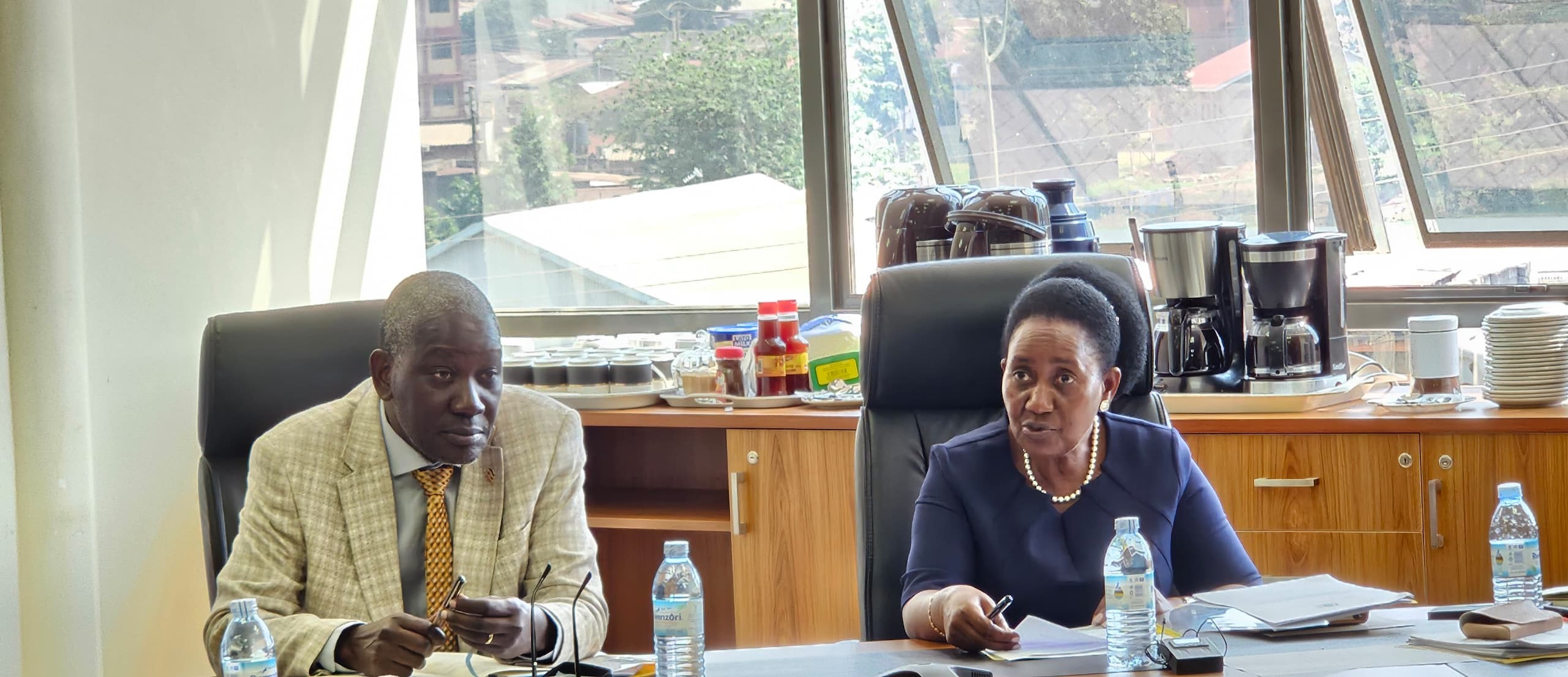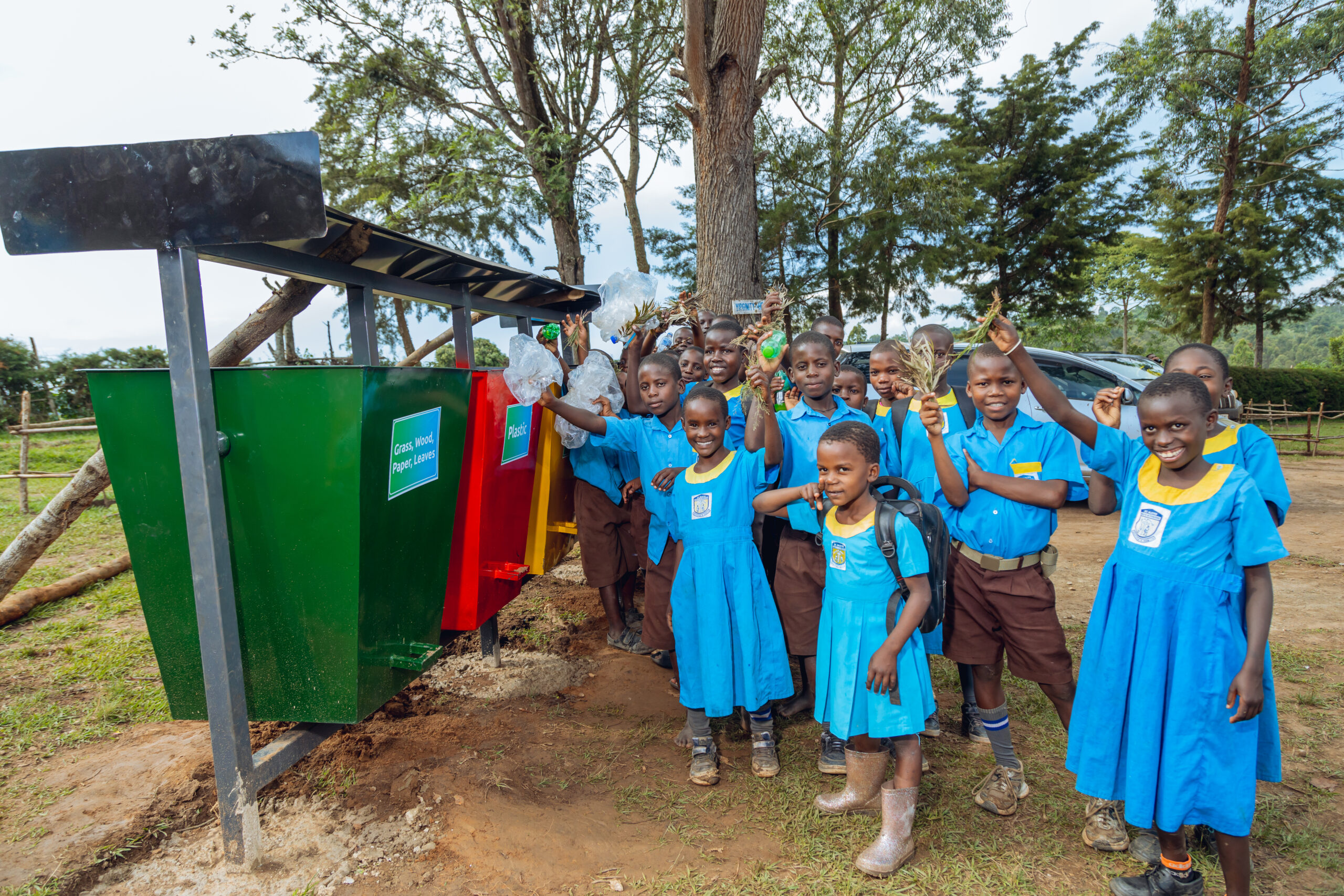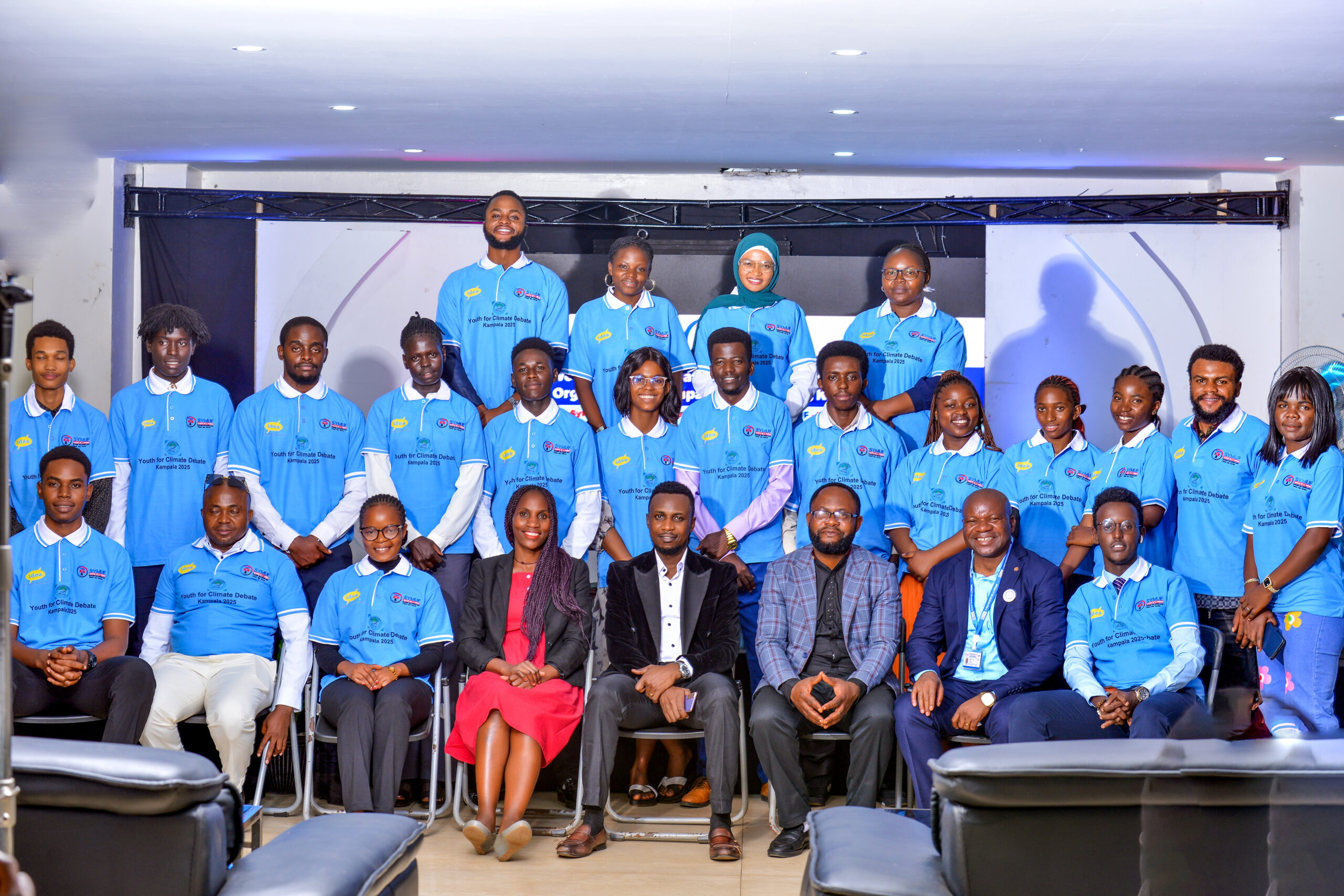Deputy head of public service urges bold moves in water and environment

Deputy Head of Public Service in charge of Performance and Service Delivery in the Office of the Prime Minister, Mrs. Jane Kyarisiima Mwesiga (right), and Dr. Alfred Okot Okidi, Permanent Secretary in the Ministry of Water and Environment (left), during the engagement.
The Deputy Head of Public Service, Mrs. Jane Kyarisiima Mwesiga, has called for strengthened coordination, innovation, and accountability across the water and environment sector as the country implements the Fourth National Development Plan (NDP IV).
Speaking during a high-level engagement with the Ministry of Water and Environment, Mrs. Mwesiga praised the Ministry’s contributions to national development but emphasized that more deliberate action is needed to close performance gaps and deliver real impact for citizens.
“We are united by a shared mission to deliver measurable results that improve the lives of Ugandans,” she said. “Your work supports nearly every other sector, from agriculture to energy, and we must be bold and forward-thinking in how we deliver.”
This engagement, she noted, is part of a broader effort by her office to monitor service delivery across government. Similar visits are expected to ministries such as Health, Education, and Infrastructure, under a whole-of-government approach aimed at improving results and citizen satisfaction.
Progress made, but big gaps remain
Permanent Secretary Dr. Alfred Okot Okidi acknowledged the gains made during the NDP III period. Wetland coverage has modestly improved, access to clean water has expanded in both rural and urban areas, and sewerage services have seen incremental growth.
However, he was quick to admit that the Ministry had fallen short on several targets largely due to inadequate financing, delayed projects, and fragmented coordination among implementing bodies.
One major area of concern is the underutilization and abandonment of water-for-production infrastructure. Recent data from the Water and Environment Management Information System (WEMIS) shows that 28% of these facilities are abandoned, while others remain partially functional due to limited maintenance and low user support.
In rapidly urbanizing towns, challenges such as low sewerage coverage, high levels of non-revenue water, and frequent flooding continue to strain sanitation systems. Informal settlements further complicate the expansion of water infrastructure, especially in Kampala and other growing urban centers.
Visibility and communication: The missing link
Dr. Okidi also highlighted the Ministry’s struggle with low visibility of government programs due to insufficient funding for communication. He decried the fact that public awareness of ongoing work remains limited not because of a lack of progress, but because there are rarely resources dedicated to sharing those stories.
“We do so much, but very little is known by the public,” he said. “The communication budget is often the smallest, and that affects our ability to show results and build public trust.”
He expressed deep appreciation to NBS Television for offering free airtime to broadcast climate-related content, calling it a valuable contribution to civic education and environmental advocacy.
The road ahead: Innovation, coordination, delivery
Looking forward, both leaders emphasized the need for integrated, citizen-centered solutions. Mrs. Mwesiga urged the Ministry to continue exploring innovations such as nature-based infrastructure, digital pollution tracking, and in-house technical design teams for mid-sized projects.
She also called for the revival of inter-agency platforms to improve coordination across agencies involved in land, water, environmental regulation, and climate resilience.
“This is the time to realign and recommit,” she noted. “We cannot afford fragmented delivery. A more agile, transparent, and collaborative approach will serve our citizens better.”
The meeting offered a rare moment of honest reflection and strategic thinking at a time when Uganda faces mounting pressure to build resilience against climate change, improve access to clean water, and protect its natural ecosystems.
Mrs. Mwesiga concluded with a strong message of support, pledging the full backing of her office to help the Ministry overcome bottlenecks and deliver on its mandate.
“I have full confidence in the leadership and technical teams here. Let this not be a one-off conversation, but the beginning of consistent follow-up and action,” she said.
As Uganda enters the NDP IV implementation phase, the outcomes of this dialogue could prove instrumental in shaping more responsive, impactful public service delivery especially in the critical area of water and environment.




